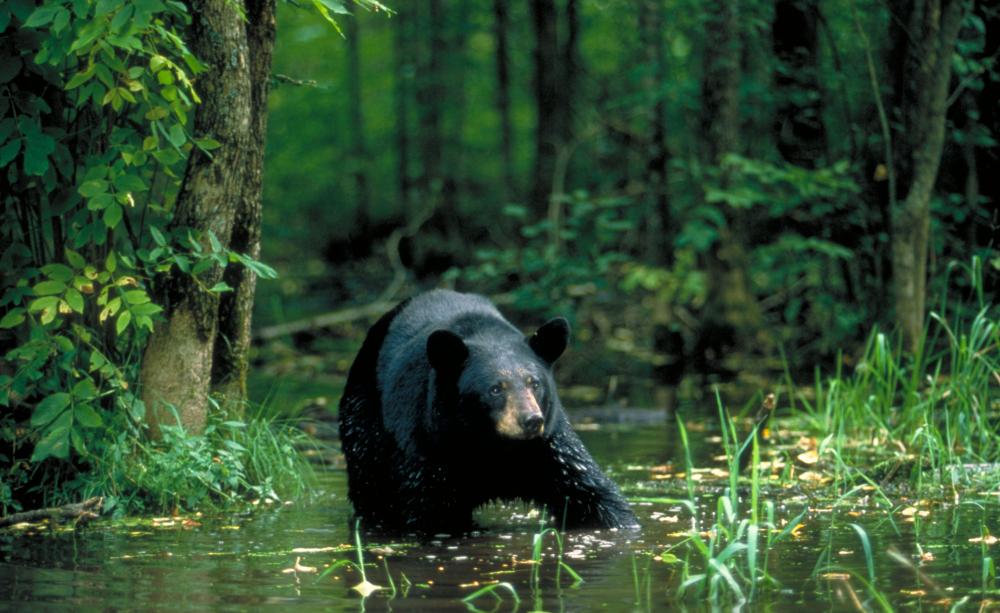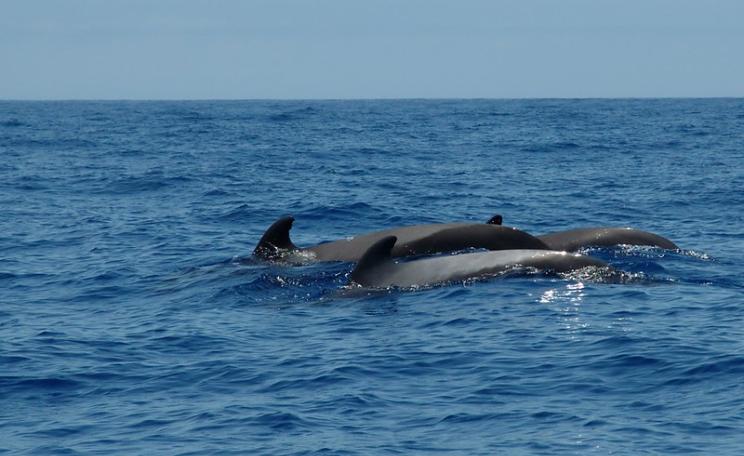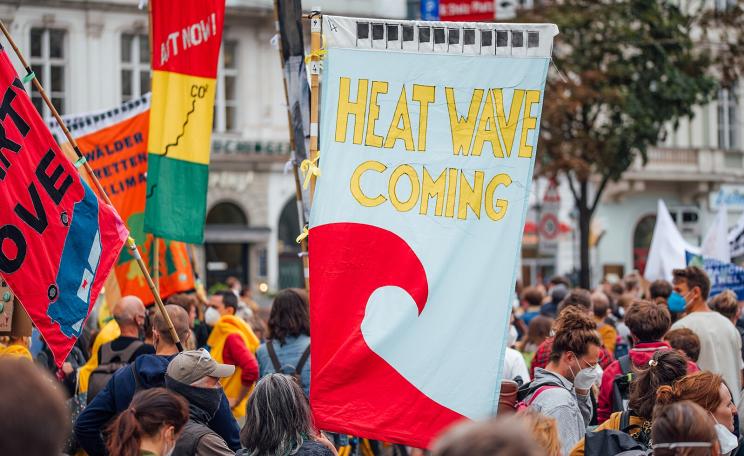Without biodiversity, there is no future for humanity.
This week’s UN Summit on Biodiversity is highlighting an alarming acceleration in biodiversity loss and calling for “urgent action on biodiversity for sustainable development.”
This focus on protecting biodiversity is crucial. We rely on nature to protect and sustain us, yet it is facing a crisis like never before. The recent UN Global Biodiversity Outlook report warns that “biodiversity is declining at an unprecedented rate” and governments have not met any of the 2010 Aichi biodiversity targets to protect ecosystems and promote sustainability.
Around the world, logging, industrial fishing, agriculture and fossil fuel extraction are destroying precious habitats, while increasing numbers of environmental defenders are risking, and losing, their lives to protect land and wildlife from corporate exploitation.
Destruction
Some of the most threatened habitats on earth are our forests. There has rightly been a global outcry at the growing destruction of the Amazon and Congo rainforests but these are not the only forests which urgently need our help.
The Southeastern USA is home to some of the most biodiverse forests in the world but they are under threat from large-scale biomass: an industry which disguises forest destruction and tree burning in UK power stations as a “carbon-neutral climate solution” and uses our energy bills to fund its burning.
Without biodiversity, there is no future for humanity.
However, there are reasons for hope. As 64 world leaders pledge to reduce deforestation and reverse biodiversity loss by 2030, this year’s UN Summit on Biodiversity is a key opportunity to stand up to the biomass industry and other polluters which value forest destruction over forest protection.
Why is biodiversity so important? Defined as the “variety of life on earth in all its forms and interactions”, the UN describes biodiversity as: “the foundation that supports all life on land and below water.” Not only do all living beings depend on biodiversity for clean air, water and food, but the World Health Organisationemphasises the crucial role which ecosystems play in supporting human health through medicine, nutrition and the control of infectious diseases.
As well as supporting our physical health, we have seen during the coronavirus crisis that nature provides many people with solace and joy, even in the darkest of times. As David Attenborough notes: “The natural world produces the comfort that can come from nothing else. [...] If we damage the natural world, we damage ourselves.”
Action
Moreover, protecting biodiversity can help to reduce the climate crisis through ecosystems such as forests, peatlands andoceans which play a vital role in absorbing greenhouse gas emissions. Forests alone are home to around 80 percent of all land-based species and they provide clean air, water, shelter and food for humans and wildlife whilst also acting as essential carbon sinks.
As David McDonald, professor of wildlife conservation at Oxford University has said “Without biodiversity, there is no future for humanity.”
However, biodiversity is in crisis. The UN’s 2019 IPBES Global Assessment Report on Biodiversity and Ecosystem Services revealed that a million species are facing extinction as a result of human activity and nature is declining around the world at a rate which is unprecedented in human history.
Equally alarming are the warnings that further deforestation will make future pandemics more likely as habitat and wildlife destruction increase the risk of viruses spreading from animals to humans.
Without urgent global action, millions are at risk from the collapse of essential life-support systems for food, pollination and clean water.
Deforestation
Biodiversity is also declining in the world’s forests. We lost the equivalent of a football pitch of rainforest every 6 seconds in 2019 with a third of the total global loss in the Brazilian Amazon, mostly as a result of clear-cutting for mining, ranching and agriculture.
In the Southern USA, meanwhile, forests, wildlife and communities are facing a different threat: the clear-felling of biodiverse wetland forests to burn as biomass energy in UK power stations.
These wetland forests cover 35 million acres across 14 southern US states and lie at the heart of a Global Biodiversity hotspot. The forests are home to many rare and endangered species, including black bears, salamanders, skipper butterflies and worm-eating warblers.
The forests also provide clean air and water, protect communities from ever more frequent flooding and natural disasters and offer a vital defence against climate change through carbon sequestration. Yet, these longleaf pine and bottomland hardwood forests are being clear-felled for the wood pellet and biomass industries, including for Drax Power Station in Yorkshire.
As well as being the UK’s biggest polluter, Drax is the world’s largest tree burner. In 2019, it burned over 7 million tonnes of wood pellets made from over 14 million tonnes of wood. Much of this wood comes from the Southern US and American NGOs and media investigations have found extensive evidence of mass logging of forests and of whole tree trunks arriving at pellet mills owned by Enviva, the world’s biggest pellet producer.
This is all done under the guise of so-called “renewable” energy, and tree burning is classed as “carbon neutral” even though it will take decades or longer for future trees to absorb the emissions produced by felling, transporting and burning trees today. This is time we do not have if we are to keep global temperature rises below 1.5 degrees.
As Rita Frost from Dogwood Alliance explains, this clear-felling and burning is devastating wildlife and forests: “Bottomland hardwood forests in the Southern US provide shelter to unique species that can be found nowhere else on the planet. Maintenance of mature, intact and contiguous forests is critical for conservation of wildlife diversity and Drax and Enviva fundamentally stand in the way of that protection. Our forests aren't fuel!"
Get involved
How can we take action to protect these forests and the many communities and species that depend on them? As power stations like Drax rely to a large extent on subsidies to fund their tree burning, a vital first step is to call on the UK Government to transfer over £1 billion in UK renewable subsidies from biomass energy to wind and solar power.
An exciting new coalition campaign called Cut Carbon Not Forests is asking MPs to redirect these subsidies from tree burning to renewables and you can contact your MP about the campaign here. There is also an Open Letter which environmental, community, trade union and public health groups can sign.
Not only could this transfer of subsidies help to create new green jobs, but it would also protect biodiversity and support communities who are suffering from noise, air and water pollution as a result of logging and tree burning.
The UN and the Trondheim Conferences on Biodiversity both emphasise that it is essential to transform our relationship with the natural world if we are to halt biodiversity loss, reduce global warming and meet the Sustainable Development Goals. As world leaders attend the UN Biodiversity Summit, we need to urge them to protect and restore existing forests, rather than burn them in power stations for energy.
By ending subsidies for tree burning and by calling on our governments to allow forests to grow, we can make a huge difference for biodiversity, communities and the planet.
This Author
Sally Clark is a bioenergy campaigner with Biofuelwatch. You can sign up for campaign updates here. You can contact your MP and ask them to help transfer UK renewable subsidies from tree burning to wind & solar power here.





